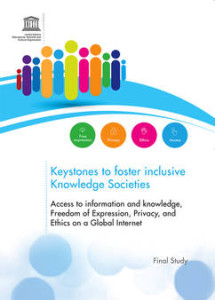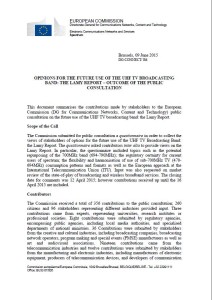 The June 2015 reports dealing with digital economy policies are focusing this month on how to build digital societies from Asia to Europe, but also on the challenges raised by the digital economy to competition rules and consumer protection policies. Other issues such as spectrum policy and digital skills are also part of the June reports. Enjoy the reading!
The June 2015 reports dealing with digital economy policies are focusing this month on how to build digital societies from Asia to Europe, but also on the challenges raised by the digital economy to competition rules and consumer protection policies. Other issues such as spectrum policy and digital skills are also part of the June reports. Enjoy the reading!
DIGITAL ECONOMY DATA
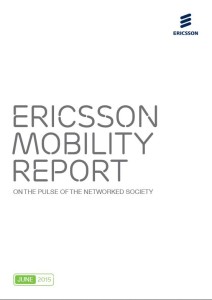 Ericsson Mobility Report, Ericsson, June 2015.
Ericsson Mobility Report, Ericsson, June 2015.
This is the well-known Ericsson report presenting a deep analysis on the current network traffic and market trends of the networked society all around the World.
It also uses internal forecasts and other external sources to predict the trends for 2020. Their conclusions are interesting, highlighting the mobile success today and for the future: strong relevance of mobile smartphones (70% of penetration doubling the levels of subscriptions), high levels of mobile coverage (90% expected), mobile smartphones as a key element for future connectivity (80% of all mobile data traffic) and increase of video traffic, leaded by video streaming services and video online. Have a look!
 Communication in the World of Apps, Ericsson, June 2015.
Communication in the World of Apps, Ericsson, June 2015.
This is another interesting report from Ericsson, from its ConsumerLab, on the Communication in the World of Apps. It shows how consumers interact with their smartphone apps and tries to draw the future, taking into account technology evolution. It also takes into account cultural differences, analyzing data of smartphone users from India, Japan, South Korea, the UK and the USA. It is interesting to discover that voice communication still relevant for users and the relevance of mobile broadband networks due to the “always on” situation of users worldwide.
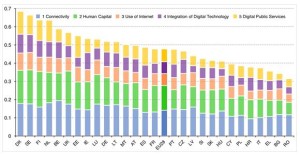 EU Digital Scoreboard 2015, European Commission, June 2015.
EU Digital Scoreboard 2015, European Commission, June 2015.
The EU Digital Scoreboard is the EC-well-know publication made annually to better know the situation and the evolution of the current EU Digital Agenda. It measures the progress done in Europe on the digital economy, based on the DESI Index (Digital Economy & Society Index), which gathers 5 main dimensions (Connectivity, Human Capital, Use of Internet, Integration of Digital Technology and Digital public Services).
You can access here the annual implementation report, the progress by country could be read here and there is also an explanatory video which is worthwhile to see.
Digital Policy Strategies
 Building Digital Societies in Asia, GSMA, June 2015.
Building Digital Societies in Asia, GSMA, June 2015.
GSMA publishes the first report of a series of three with the objective to gather efforts to accelerate the implementation of digital societies in Asia, and more specifically in 6 countries (Bangladesh, India, Indonesia, Malaysia, Pakistan and Thailand). The report explains what the enablers are to build an effective digital society. These enablers touch the relevance of infrastructure and technology, the support of governments to innovation & investments, the variety of content & apps and the need to count on strong digital literacy and skills for users.
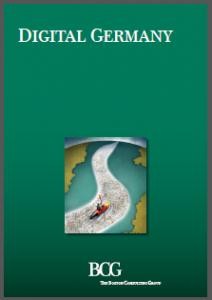 Digital Germany, BCG, June 2015.
Digital Germany, BCG, June 2015.
BCG has developed a digital index to identify which sectors are dealing adequately with the digital transformation and those who are lagging behind. It also identifies the digital challenges in Germany and possible changes, taking into account global best practices.
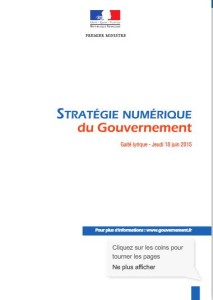 Stratégie Numérique du Gouvernement, France, June, 2015 (in French)
Stratégie Numérique du Gouvernement, France, June, 2015 (in French)
The French government has also delivered its own digital strategy for the country, based on 4 main axes: freedom to innovate, equality of rights, fraternity and accessibility of the digital world and modernization of the state through digitization. For this, a set of measures have been adopted, with clear objectives and plan of action for each measure. The document is only accessible in French.
INTERNET GOVERNANCE
This is an Internet study gathering the outcomes of a multistakeholder consultation process, including the UNESCO Conference debates “CONNECTing the Dots” on last 3- 4 March 2015. It also gives some guidelines for future action at the UNESCo level on Internet policy and protection of Internet users. It will be presented as an input to the post-2015 Development Agenda and to the UN General Assembly overall WSIS review process.
 The Internet and Sustainable Development, ISOC, June 2015.
The Internet and Sustainable Development, ISOC, June 2015.
ISOC is an active stakeholder in the Internet Governance policy and it has released a short report linking the Internet to the sustainable development. It explains that all the stakeholders share the responsibility to work for a sustainable development to provide the benefits of Internet to everybody. This is the ISOC contribution to the UN debate on the sustainable development goals and the WSIS review.
COMPETITION POLICY
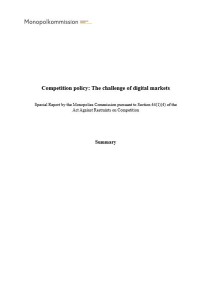 Competition policy: The Challenges of Digital Markets, MonopollCommission, Germany, June 2015.
Competition policy: The Challenges of Digital Markets, MonopollCommission, Germany, June 2015.
This is a summary of a longer report issued by the German Monopolies Commission to the German Federal Government and Legislature focused on competition policy for the digital markets. Due to digitalization, markets are changing structurally affecting many areas and creating new challenges for the future of competition policy. This report analyses the market structure in some digital markets from an economic and competition law perspective, including the issues of data and consumer protection. It adopts a clear perspective of the current trends and puts its emphasis on multi-sided platforms, including search engines, social networks and e-commerce. The Commission delivers also some recommendations to better adapt competition policy application to this new world coming. It presents an interesting perspective on asymmetric regulation between traditional services and new digital service, recommending a reduction of the levels of regulation.
For those fluent in German, you can access here the complete report and also a set of 1- 2–3 explanatory posts from our Public Policy Blog concerning this report.
SPECTRUM POLICY
The European Commission has published the outcomes of the public consultation launched in the past September 2014 on the Lamy report concerning the Ultra High Frequency (UHF) band. It summarizes more than 350 contributions.
Main conclusions are that an EU coordinated approach, a common roadmap as well as a cost-efficient transition are needed for a successful release of the 700MHz band in the European Union. Next step: in the next months, the EC will deliver its proposals for a coordinated release of 700MHz band.
CONSUMER PROTECTION POLICY
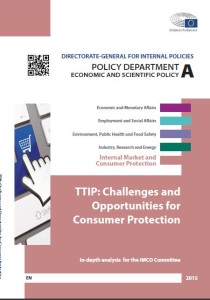 TTIP: Challenges & Opportunities for Consumer Protection, EU Parliament, June 2015.
TTIP: Challenges & Opportunities for Consumer Protection, EU Parliament, June 2015.
This is an EP study which analyses the potential options of regulatory cooperation for the TTIP, a key agreement for the transatlantic relationships between the EU and the USA. The focus is the consumer protection, raising the existing challenges, the opportunities but also the role and position of the EP in this process.
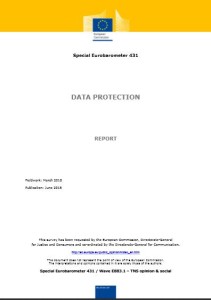 Data Protection, Eurobarometer, June 2015.
Data Protection, Eurobarometer, June 2015.
The Eurobarometer, the body in charge of surveying the EU public opinion, has released a report of the opinion of Europeans concerning data protection policies. The outcomes show that trust in digital environment could be improved and it indicates the main worries of EU users concerning the use of their personal data by the digital industry. Here you can access a clear factsheet on the main outcomes.
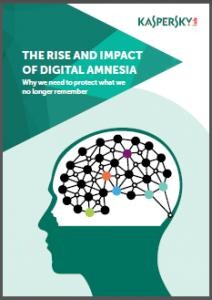 The rise & Impact of Digital Amnesia, Kaspersky, June 2015.
The rise & Impact of Digital Amnesia, Kaspersky, June 2015.
As Internet is present in our every day’s life, this is a curious report showing that our confidence on the ability to keep personal data by our digital devices is astonishingly high and how we should increase the protection of this personal data.
DIGITAL SKILLS
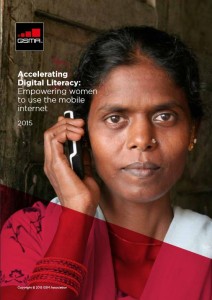 Accelerating Digital Literacy: Empowering Women to Use the Mobile Internet, GSMA, June 2015.
Accelerating Digital Literacy: Empowering Women to Use the Mobile Internet, GSMA, June 2015.
This report analyses the challenges women face when accessing mobile internet with low mobile literacy and digital skills. It also shows how women learn these skills and identify the barriers women run up against in various learning channels. This is relevant as in developing countries access to digital could better empower women and more efforts should be done in this area.
SMART CITIES
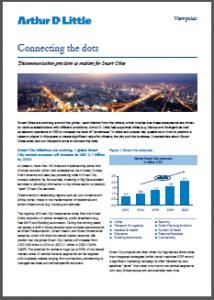 Connecting the Dots, Telecommunications providers as enablers for Smart Cities, Arthur D. Little, June 2015.
Connecting the Dots, Telecommunications providers as enablers for Smart Cities, Arthur D. Little, June 2015.
This is a short report showing the relevance of Smart Cities around the World and the different existing models, analyzing the role of the different players of the value chain. It is clear that there is not a single solution and this should be adapted to the city´s needs and the urban policy adopted. It gives a good overview of smart cities models and some interesting data.
This is all for June. See you soon for the Digital Economy reports published in July!

